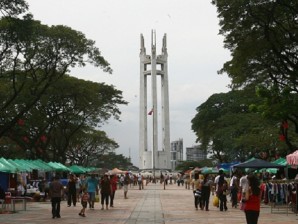MANILA, Philippines — Quezon City and the City of Manila now have lower COVID-19 reproduction numbers, which is a good indication for a future downward trend of cases in other local government units (LGUs) in the National Capital Region, according to independent pandemic monitor OCTA Research.
OCTA Research fellow Guido David told INQUIRER.net in a text message on Wednesday that Quezon City now has a 1.27 reproduction rate as of August 31 from the previous 1.47 as of August 24.
In an interview on ABS-CBN’s Teleradyo, David said the decreased numbers in the two cities may be a signal of a possible downward trend of cases in other LGUs in Metro Manila.
“Nakita namin na although sa Metro Manila nasa 1.44 ang reproduction number, ‘yung dalawang pinakamalaki na LGU sa Metro Manila, ‘yung Quezon City at Manila, ay medyo mababa na ang reproduction number nila,” he said.
(We saw that although the reproduction number in Metro Manila is 1.44, the two largest LGUs in the region, Quezon City and Manila now have lower reproduction numbers.)
“Magandang indication ito kasi kapag ‘yung malalaking LGU ay bumababa ang reproduction number, usually susunod din ‘yung mga maliit na LGU,” he added.
(This is a good indication because when big LGUs have lower reproduction numbers, smaller LGUs tend to follow.)
David noted that the 1.44 reproduction number in Metro Manila is still considered low.
“If we stay the course, nakikita natin na maaaring magkaroon tayo ng (we may see a) downward trend sa (in) Metro Manila by second or maybe third week of September,” he added.
Before this, David earlier expressed optimism that the COVID-19 reproduction number in Metro Manila may fall to less than one by mid-September.
Metro Manila currently has 40,534 active COVID-19 cases while the entire Philippines has 145,562 active cases, based on the tracker of the Department of Health (DOH).
The DOH earlier warned that nationwide coronavirus cases may peak in mid-September due to the highly transmissible Delta variant that is driving the current surge in infections.
